 I’ll let you guys in on a little secret…
I’ll let you guys in on a little secret…
A very little secret, because many of you already know or suspect what former Kansas City Star reporter Jim Fitzpatrick and I understand but seldom talk about.
And that’s that news reporters are not only fallible, they’re often easily deceived and/or mistaken. You see, there’s a measure of truth in the axiom, Jack of all trades, master of none.
Because not all “Jacks” are created equal.
It’s all too common for mainstream reporters – however well intentioned and skeptical – to arrive at naive conclusions. Well articulated and reasoned conclusions – after all most reporters are pretty good writers – but naive ones nonetheless.
Generally speaking it’s the experts in a given field that recognize the ineptitude, while the general public mostly doesn’t have a clue.
Take The Daily Beast’s recent story about, “The Five Lessons the Faltering Music Industry Could Learn from TV.
“As record labels repeat tired formulas and watch their business model collapse, they should turn on the television to see how another outmoded industry came back from the brink.”
In a nutshell, the writer argues that the music biz needs to target adults – not kids – improve technology, “resist tired formulas,” invest in quality talent and then figure out how to get people to pay for what they’re used to getting for free.
 Bullshit, says entertainment hit man Bob Lefsetz.
Bullshit, says entertainment hit man Bob Lefsetz.
“You’ve got to stop e-mailing me this article,” Lefsetz begins.
“This is what drives me crazy about America, people glom on to something that squares with their world view and trumpet it to high heaven even though the writer’s got no basis in reality and the whole missive leaves the consumer and business realities out of the equation.
We had a high quality carrier in the music business, it was known as the CD. Hell, we even improved it, with the SACD and DVD-A. But the truth is no one wanted the latter. They hit the market like the DeLorean, too late and too expensive, out of touch with the times.
Yup, the music industry was there first. The CD was an improvement to most people’s ears. They had scratched vinyl and high-speed duplicated cassettes, to hear pristine sound was a revelation. The fact that it was tinny and not remastered for the format initially – change takes time – was every show in HD when you bought your flat panel?
And your flat panel was (good) enough for television, and the price cratered seemingly overnight. Whereas in music you needed an amplifier and speakers and it’s all very expensive when people are notoriously cheap.
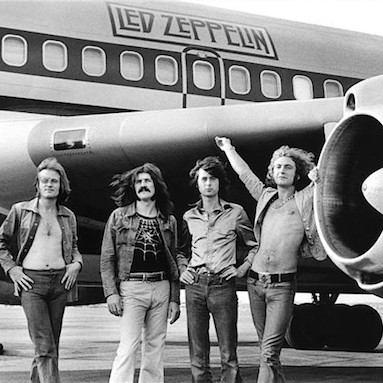 And speaking of cheap, that’s one of the main reasons people stole music, which they wanted to hear so much they wanted to own it. No one’s building a collection of TV shows, once is enough. Furthermore, no one wants to watch the TV shows from the 1960s and 1970s, to a great degree the 1980s and 1990s, whereas classic rock gets tons of airplay today.
And speaking of cheap, that’s one of the main reasons people stole music, which they wanted to hear so much they wanted to own it. No one’s building a collection of TV shows, once is enough. Furthermore, no one wants to watch the TV shows from the 1960s and 1970s, to a great degree the 1980s and 1990s, whereas classic rock gets tons of airplay today.
And getting back to hardware, we got the iPod back in 2001.
We didn’t get video on hand-held devices until the advent of iPhones and broadband streaming, and still most stuff is unavailable, you’ve got to steal it, and for this the writer is lauding the TV industry?
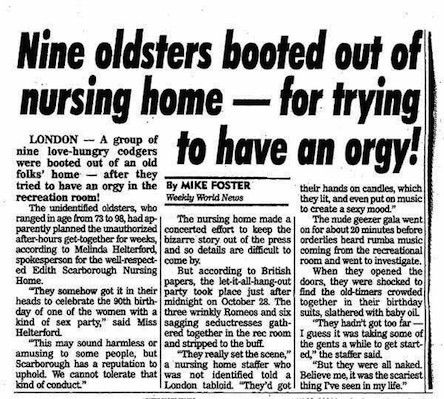 And if you think appealing to oldsters with new music is the answer, you probably believe these same people are still going to prom and dreaming of having babies.
And if you think appealing to oldsters with new music is the answer, you probably believe these same people are still going to prom and dreaming of having babies.
Statistics tell us oldsters don’t want to hear new music, they just want to groove to the greats. Sure, a few people are aficionados, but tell me a mass market company that can survive appealing to niches. Remember when Ford came out with that modern T-Bird? They had to discontinue it because not enough people wanted it, it didn’t scale!
And sure, we’re not in the golden age of music, but that does not mean great stuff doesn’t exist.
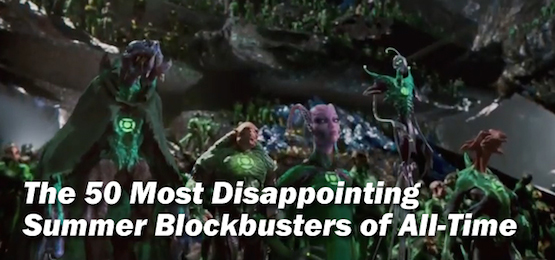 Meanwhile, why doesn’t this writer come down upon the movie industry, which has had a bad summer and makes bland product appealing to minors? Because the movie industry gets all the respect, and sophisticated people know that the DVD market plummeted and the only way the studios can make their money is to appeal to overseas viewers. In other words, if it doesn’t play everywhere, it can’t make any money, and money is the bottom line.
Meanwhile, why doesn’t this writer come down upon the movie industry, which has had a bad summer and makes bland product appealing to minors? Because the movie industry gets all the respect, and sophisticated people know that the DVD market plummeted and the only way the studios can make their money is to appeal to overseas viewers. In other words, if it doesn’t play everywhere, it can’t make any money, and money is the bottom line.
Along with distribution.
The barrier to entry in music is almost nonexistent. You know how much money it costs to make those TV shows? Far in excess of what it does an album. And despite endless uploads to YouTube, almost no one has gravitated to network or cable from that platform, because they’re just not good enough. What, should the labels sign alta kashers (losers) just so this writer will feel good, this writer who will move on to a new topic tomorrow?
We’ve learned time and again that producing music requires expertise.
 Andy Lack came up with the copy protection fiasco and drove Sony right towards the cliff, re-signed Bruce Springsteen to a deal so rich the Boss was the only one who could make money. But armchair quarterbacks believe they can solve all the music industry’s problems on a whim.
Andy Lack came up with the copy protection fiasco and drove Sony right towards the cliff, re-signed Bruce Springsteen to a deal so rich the Boss was the only one who could make money. But armchair quarterbacks believe they can solve all the music industry’s problems on a whim.
Are there problems? Of course!
But the truth is if you’ve got any popularity, the bitch is that no one can get a ticket. Prices are insane and StubHub is more than profitable. This is a problem?
As for giving it away… This idiot would probably tell the TV industry to charge every time someone watches a program, misunderstanding not only the model, but business realities.
The truth is the music business was the canary in the coal mine.
The reason files sound so bad has got to do with bandwidth, the ability to send over thin pipes. And this was when the movie and TV industries were laughing, believing their content was unstealable, not realizing as soon as we got fat pipes, they’d be in trouble.
And what have these visual content companies done? Lobby against the high speed pipes of South Korea and other bleeding edge technical nations. Yup, blame TV and movie studios for holding our whole nation back, because the truth is faster broadband falls straight to the bottom line. Spotify started in Sweden because of the insane speed of the connections. Imagine what could be developed in the U.S. if we had equally large pipes?
And speaking of Spotify, we’re far ahead of TV and movies.
You can listen to all our product for one low price all in one place. Try doing that with television.
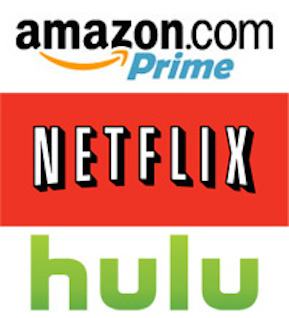 You’ve got to pay everywhere, and it’s only getting worse. You’ve got to have a Hulu subscription, an Amazon one and a Netflix one. And you still can’t see everything.
You’ve got to pay everywhere, and it’s only getting worse. You’ve got to have a Hulu subscription, an Amazon one and a Netflix one. And you still can’t see everything.
Which is why when you delve into P2P statistics, you see that most of the content is visual, not music, because in music we’ve gone a long way towards solving the problem of fair, legal distribution.
And technology hurt in music too.
Because YouTube gained traction in the United States before Spotify, so it inured people not to pay. And it’s easy to remove visual content from YouTube, but much harder with music. Because TV shows and movies are long, and YouTube used to have a length limit. Furthermore, the service is riddled with TV and movie excerpts.
But where are the tribute videos, the covers that are so prevalent on YouTube? It’s almost impossible to eradicate them. Furthermore, who’d want to do this? It evidences passion, and passion delivers dollars. Yup, while the television and movie industries are all about walls, we’ve torn them down in the music business, we’re far ahead.
(But) there are numerous bumps in the road coming for the visual industries.
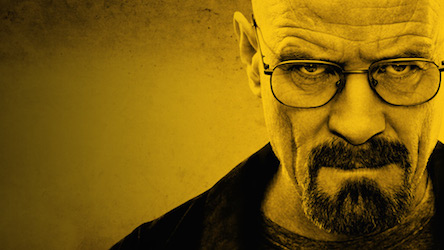 And don’t forget about repeatability. How many times do you want to watch “Breaking Bad“? Once is enough, and that’s one of the great shows. Whereas even second-rate music has people playing it again and again. And everything new is competing with everything old. That’s right, Rihanna is competing with Led Zeppelin, never mind numerous other acts with less traction.
And don’t forget about repeatability. How many times do you want to watch “Breaking Bad“? Once is enough, and that’s one of the great shows. Whereas even second-rate music has people playing it again and again. And everything new is competing with everything old. That’s right, Rihanna is competing with Led Zeppelin, never mind numerous other acts with less traction.
And this bozo says we can solve our problems by getting people to pay for music, by stiffening our backs and telling the public to do it our way. Hasn’t happened yet. Didn’t we try that? Didn’t the RIAA sue people? Did that make revenue jump? OF COURSE NOT!
 So you don’t like the way it is now, you’d like it to return to the way it used to be.
So you don’t like the way it is now, you’d like it to return to the way it used to be.
Well, I’d like my hair back, and so many other benefits of youth.
But that ain’t ever gonna happen. Oh, I could get a rug and plastic surgery and those around me would tell me I look good when the truth would be everybody would be snickering behind my back, laughing at me.
Like I am with this author.
We lived through the Renaissance of music, the sixties and seventies. And MTV blew up revenues in the eighties and nineties, while focusing the whole world’s attention on few acts. The Internet blew a hole in all of that.
The television and movie industries like to make like the Internet doesn’t exist.
As for desirable product… It turns out that what the majors are selling is the only thing people are buying. All the vaunted Americana acts, all the acts for oldsters that get ink, check their plays on Spotify, never mind sales on SoundScan, they’re bupkes.
The truth is major labels are a business. They are not public institutions charged with propagating and sustaining greatness. That’s the opera and the symphony, meanwhile the Met is financially challenged and symphonies keep shutting down. Why doesn’t this writer just tell these institutions to have some self-respect and charge more?
That’s right. The music industry is almost fully-adjusted for the modern era, the dog days are behind us. And the truth is, if anybody does anything good we’ve got millions looking for it, who will blow it up, and majors who will sign anything with traction.
The fact that there’s more money in the financial industry and tech, that the best and the brightest don’t see music as a calling, that’s got nothing to do with the business. (Universal Music Group chief exec) Lucian Grainge didn’t cause that.
The great thing about music is how the constant flow of material renders indelible hits that could not be predicted a moment before their arrival. Like Lorde’s “Royals,” which is better than most television and is so infectious listeners can’t stop playing it. Maybe she’ll inspire others, let’s hope so.
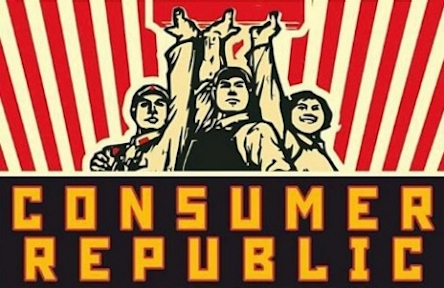 But the truth is the music game is in the hands of the consumers.
But the truth is the music game is in the hands of the consumers.
The business just follows the trends. The consumers upended the business model and the consumers are the artists, with the ability to change the world.
And now we’ve got a guy complaining we don’t go back to the old era, where content was behind bars and the gates were controlled by a few old men.
RIDICULOUS!







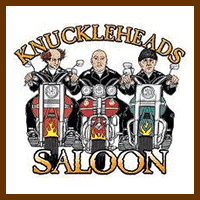


I’ve known Janis Ian since her comeback in the 70s. She was one who welcomed downloading songs, knowing that person may comeback and buy the album.
Her take on the future? We won’t own music, books, movies, rather we will pay each time we access them on the Cloud.
http://www.janisian.com/forum/showthread.php?14336-Welcome-to-the-Future
PS Stomper, chuck, you too Hearne check out my photo on her site. LOL